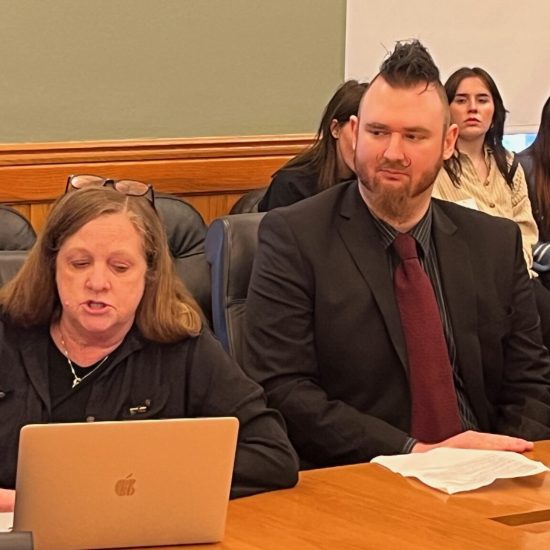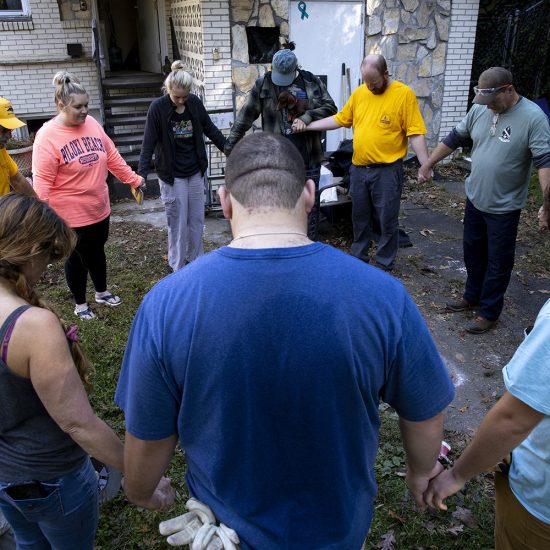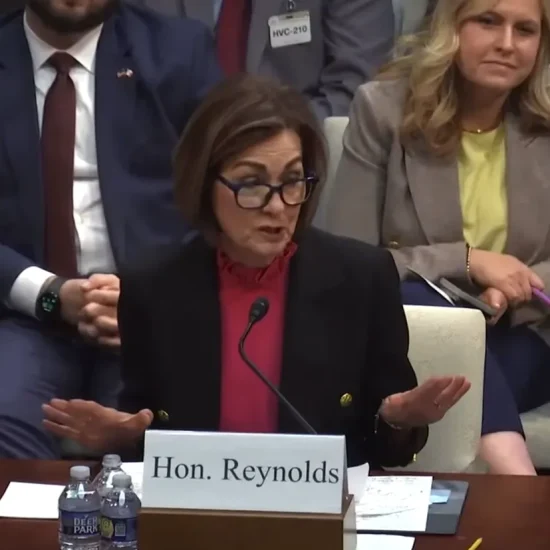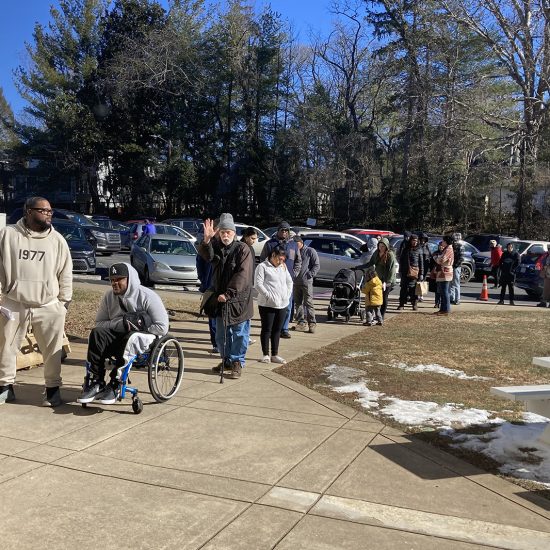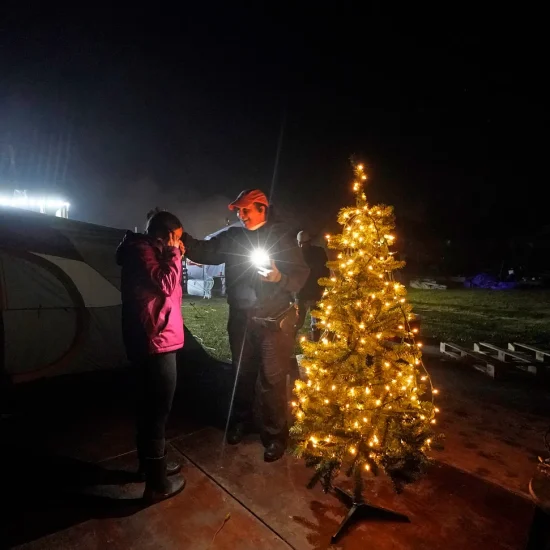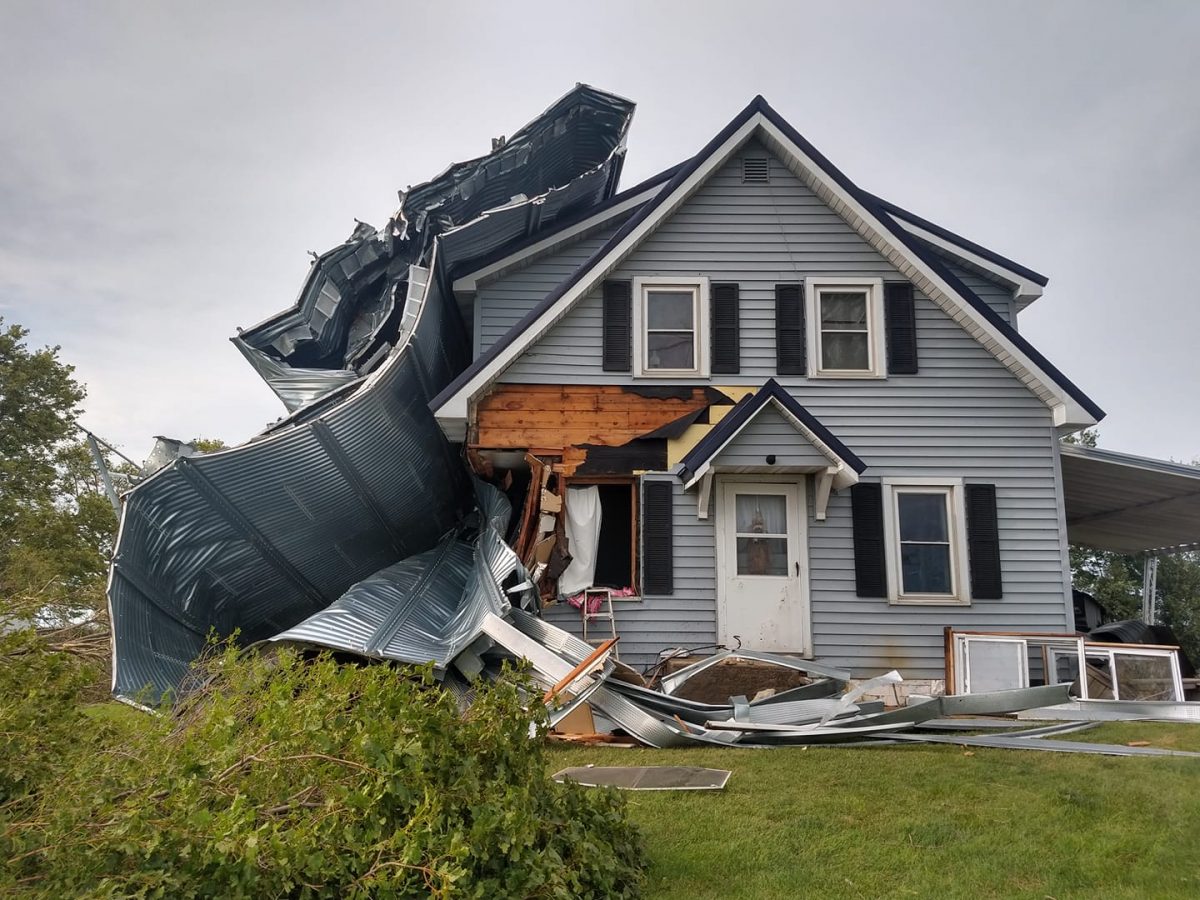
CEDAR RAPIDS, Iowa (BP) — Cheryl recalls the moment she heard the storm sirens as a powerful, sustained windstorm — a derecho — approached Cedar Rapids, Iowa. Trees fell around her as she drove home.
“Ran in the house thankful to be alive, and the car stood there never getting one scratch. And I thought ‘that is God’s love for me,’” she told fellow members of Veritas Church in Cedar Rapids Sunday (Aug. 16) in its worship service on Facebook. “And since then I’ve felt so loved by God that he protected me through all that, and also [for] all the help, and we just praise God.”
Twenty-nine trees fell on their home and in their yard as the storm hit Aug. 10 with maximum winds of 112 mph near Cedar Rapids, the Des Moines Register reported Aug. 12. At least three people in Iowa and one in Indiana died in the storm as it cut power, felled trees, destroyed crops, and damaged buildings in its run from eastern Nebraska across Iowa, Wisconsin, Indiana, and Illinois, Weather.com reported. The National Weather Service defines a derecho as a widespread wind damage event caused by severe thunderstorms.
Jerry Palmer, a volunteer disaster relief incident commander from the Missouri Baptist Convention, arrived in Cedar Rapids today with an advance team of five volunteers. It’s believed to be the first out-of-state team to arrive onsite.
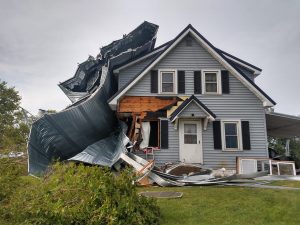
A damaged farmhouse in Vinton, Iowa, with part of a silo sidewall blown against it, on August 11, 2020. (Darrell Werning/National Weather Service/Creative Commons)
“It looks like a war zone,” Palmer said. “If you could imagine a hurricane in middle America, in Iowa, that’s what you would see. So many power lines down, houses without roofs.”
He said the storm stayed on the ground for 40 minutes in the city, with gusts up to 120 mph.
“It’s just a tremendous amount of damage here in Cedar Rapids and in other places. This area is devastated.”
Hundreds of thousands were still without power a week after the storm, NBC Nightly News reported Aug. 16. In Cedar Rapids, 75 percent of the city is without power, including Immanuel Church where Palmer is setting up a command post. At the height of outages, more than 1 million were without power across several states. The power outages and COVID-19 safety protocols have hampered the Southern Baptist disaster relief response.
“We’re hoping to have chaplain and assessor teams on the ground tomorrow (Aug. 18), and maybe by Wednesday we’ll have chainsaw crews in,” Palmer said. “But we’re here probably three or four weeks.”
A shower trailer and a small feeding unit are also on the way. Palmer could accommodate up to 30 volunteers, he said, and could set up a command post at another church if needed. He’s contacting other states and had expected teams from the south, until storms started developing in the Gulf of Mexico.
Hundreds of residents were displaced from their homes by the storm, including refugees who are living in tents after their apartment homes were damaged, Palmer said. Iowa lost about $3.77 billion in soybean and corn crops and suffered about $82.7 million in damage to homes, the Register reported Monday (Aug. 17). Downed trees were stacked as high as 10 feet in some areas and city crews were overwhelmed, NBC Nightly News reported.
Mike and Shari Carlson, Baptist Convention of Iowa Disaster Relief co-directors, were beginning their response to the damage today.
“It has been very difficult even for emergency management there, due to lack of power, internet, and minimal cell service,” the couple said in written comments.
Iowa Gov. Kim Reynolds told the Register that most power should be restored Tuesday. Reynolds has requested $3.9 billion in funding from the Federal Emergency Management Agency’s Individual Assistance Program for 27 Iowan counties.


